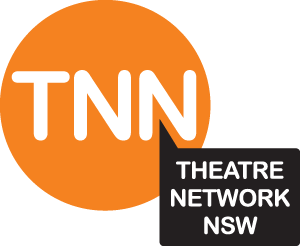Here are the notes out of this inspiring event:
Making Theatre, Dance and Writing for Young Audiences in NSW.
A sector conversation hosted by Theatre Network NSW and Casula Powerhouse on 12th July.
With great thanks to Craig Donarski, Casula Powerhouse Director and Claudia Chidiac WOW Festival Producer + Curator as well as our dedicated panellists and conversationalists: Amy Hardingham, Fraser Corfield, Michael Campbell, Gemma Pepper, Natalie Rose, Leonard Dennis-Zajkowski and Rosie Dennis.
This work discussed in this forum is primarily made for and with young people (8-26 years). However, participants (age 7 upwards) at this forum agreed that the most inspiring works are those that inspire all ages of audiences.
These young people – audiences, makers and participants – are our future and the visibility of their stories is critical to Australian culture.
Groundswell : Much of this work relies on groundswell and on connection to place: a collaborative, shared voice of ‘extraordinary practice’ but all attendees agreed that there were limited avenues to share this work across different communities. A lot of work is being developed and made but it is not easy to share that work or to get it out into communities – particularly those outside of the original community and into new or larger audiences.
Where it plays: In general festivals are a great platform for this work and these festivals allow for engagement, new ideas, breaking of forms, playing with sense, exploring diversity and connecting with our audiences in ways other than straight performance. But these experiences are limited in place and time and the broader telling of those stories, a larger experience is often overlooked or not supported.
Building Trust: Parents/grandparents/carers and teachers are considered guides and door-openers for young people to experience their own stories through performance. It is therefore critical that we build better relationships with these ‘door openers’. Such relationships require trust (often through a trusted venue or work) and feeding independent or collaborative work into these places or works of trust will be critical to supporting independent/diverse performance.
Gateways of performance and inclusivity: Transitions for makers: stepping stones. Financial considerations can be barriers to making the work or having it succeed particularly for those making work outside of a company or community. Partnerships, networking and opportunities to resources and trusted venues are critical. Monkey Baa is one such venue that independents could approach to take on work. What other opportunities are there outside of festivals.
Risk and Holistic Experiences: Is there a divide between ‘commercial’ performance and ‘non-commercial’ and is talking to this division useful? Do our audiences recognise this difference and make choices accordingly? Inclusive use of new mediums can be useful when used well. Gemma Pepper spoke about Side Pony’s new work ‘Into The Jungle’ which developed out of having to work across vast Australian distance to create work and one of the first works for young audiences her company has created.
Equipped with a mobile phone and headphones players physically act out the story together, each guided by their own rich audio score and individualised instructions. This is a very active and very human tech experience; taking the imaginative, physical play that kids love and souping it up with sound effects and full musical score. Into the Jungle is technology without the screens, inviting kids to imagine a brave new world (with the help of some great sound effects) that they are at the heart of.
These and other panellist’s stories raised the question of risk, the capacity to build new work and tell different stories which are relevant to our communities. Because good theatre stories are more than just eh performance – they are about the full experience of going to the theatre. The experience is the ‘full package’ i.e. not just the work but the experience of going to the theatre, who you go with, the form of the performance, what the venue is like, what you do there, how comfortable you feel etc. This ‘whole of experience’ is a special thing that needs to be considered when developing where and how to show a work and can impact on the entire process of developing the work.

Leonard Dennis-Zajkowski and Rosie Dennis spoke on stage about what interests him at the moment and which he thought might interest the forum audience. These included his ‘Lego’ creations, a ‘Kenzo’ YouTube clip, Sean Tan’s ‘The Lost Thing’, and UTP’s multi-faith work ‘One Day for Peace’. This allowed all participants insight into the complex nature of why performance for young people is such a complex sector to work in and the risks inherent in it and the joys of success. Leonard was very generous with his time and thoughts on creativity and we thank him and Rosie for being part of the forum. Amy Hardingham had just come from a ‘Theatre Critics’ session with young writers and some of them joined us for this industry discussion and shared with us some of the performances they’ve recently seen, what they liked and what they didn’t like. The clarity of their responses was telling in itself and re-ignited conversation about experiencing ‘extraordinary’ performance and how we can better share what we make through tours, venue opportunities, and partnerships.
Opportunities to continue working on:
- Artist residencies in trusted venues/organisations that create work for young audiences
- Identify all venues and festivals linked to creative development/shows/tours for work for young audiences
- More networking opportunities for those working in this field or looking to work in this field


